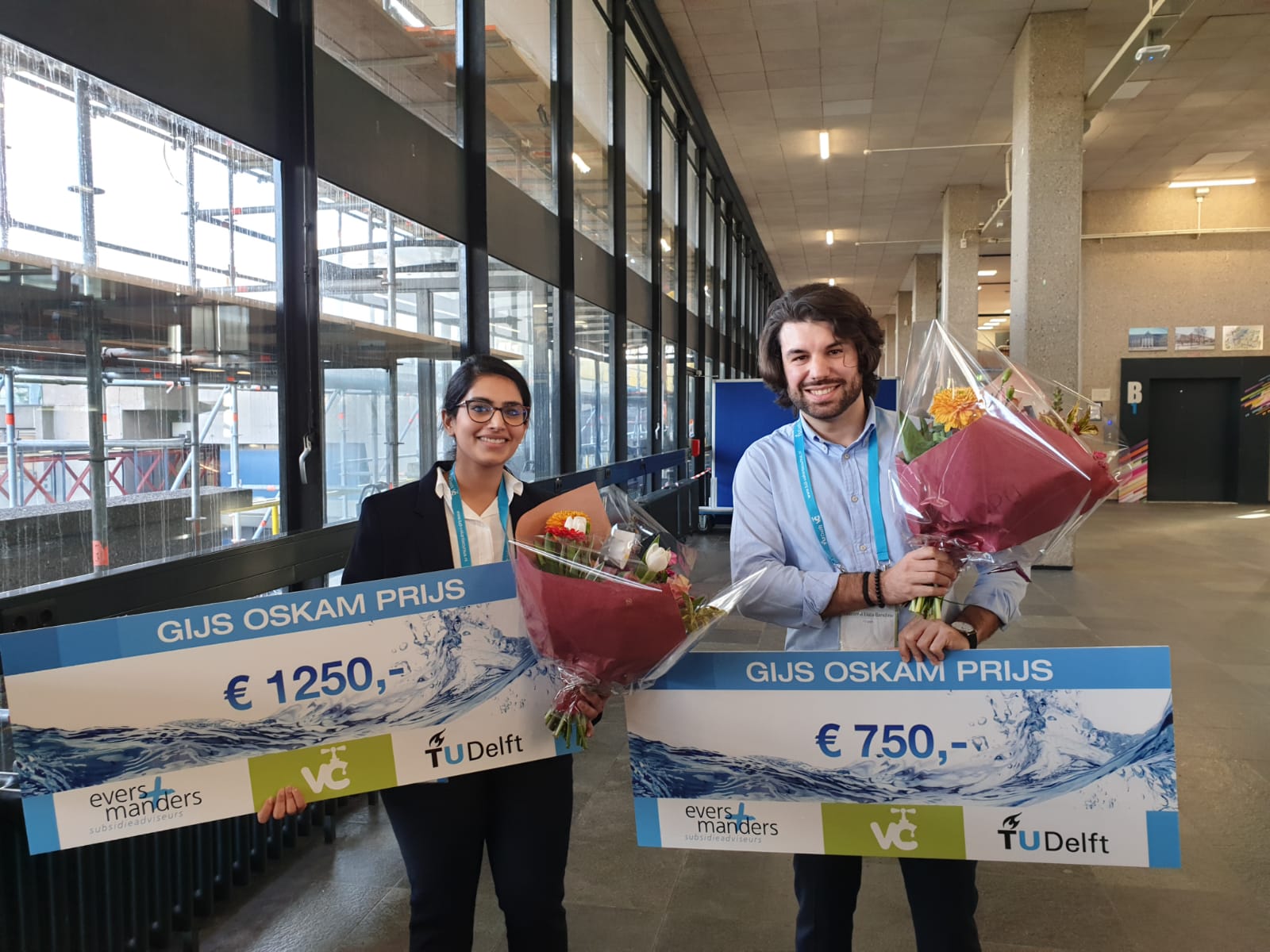Last Gijs Oskam award for best MSc thesis
Gijs Oskam passed away last year (2019). He was the most frequent participant of the “vakantiecursus”, but was also known through the development of the Reservoirs of Brabantse Biesbosch and his fights against the pollution of the raw water source, the river Meuse, which is nowadays, again, a very actual problem.
In addition, Gijs Oskam was, for the last 20 years, fully connected to his own Gijs Oskam award for best MSc thesis in the Urban Water Cycle. Many award winners also found their way to the water sector, like the first winner Rene van der Aa (Waternet); Doris van Halem (TU Delft) and Abel Heinsbroek (Vitens). Gijs Oskam always kept contact with these water specialists and was a true ambassador for the young talents. Honouring Gijs Oskam, the Gijs Oskam award was conferred for the last time on 10th of January 2020, during the Vakantiecursus in Delft.
During the last years, many things changed, and nowadays the student population at Dutch universities is much more international than before, also because the good reputation of the Dutch water sector, which can be noted from the origin of the present candidates (South Africa, India, Italy). The Gijs Oskam award 2020 was meant for young academics who graduated in 2018 or 2019 in the field of the Urban Water Cycle. The award of € 2500,= should give the young academics an extra motivation and the most important criteria for winning are importance, originality, and quality of the research.
This year the evaluation committee could choose from three excellent candidates: Julia McGregor, Shreya Trikannad and Giacomo Bandinu. Because of the large competition, it was decided to split the prize into a first, second and third one. The evaluation committee decided to award the second prize to Giacomo Bandinu and the winner of the Gijs Oskam award 2020 was Shreya Trikannad.
Shreya received this recognition because the research was novel, tackled current real health concerns (such as superbugs), and provided, above all, an elementary framework towards understanding an original disinfection method. Using a simple process, good old out- of-the-box thinking, and a proactive attitude, she proved disinfection can be achieved without the use of chemicals or expensive equipment. Her results have opened the way to new research questions, pushing us towards further improving the process.
Luuk Rietveld
